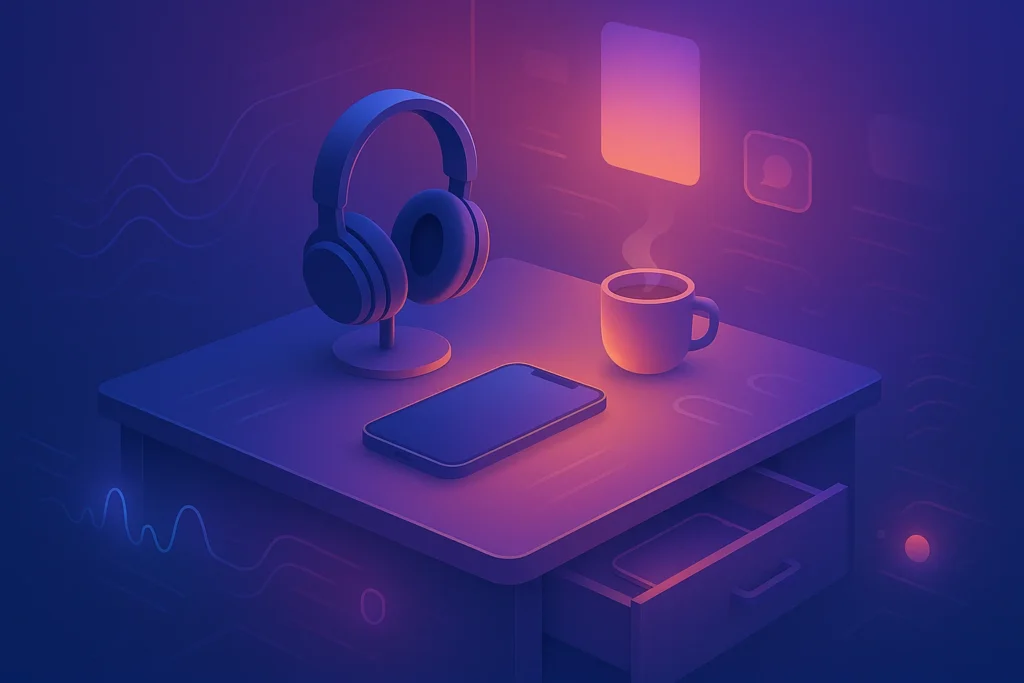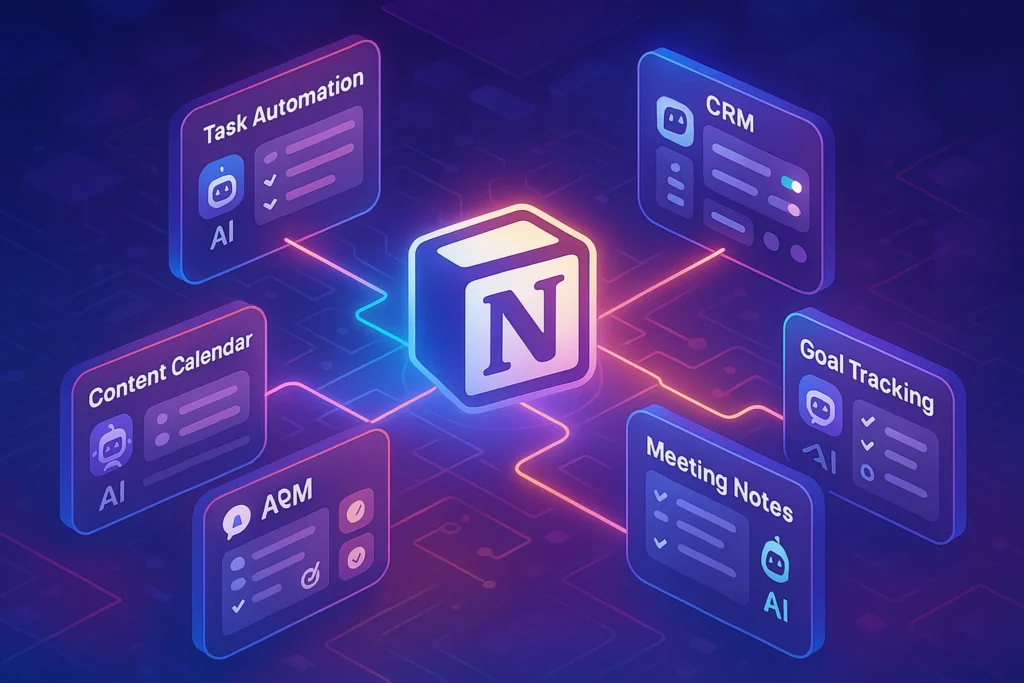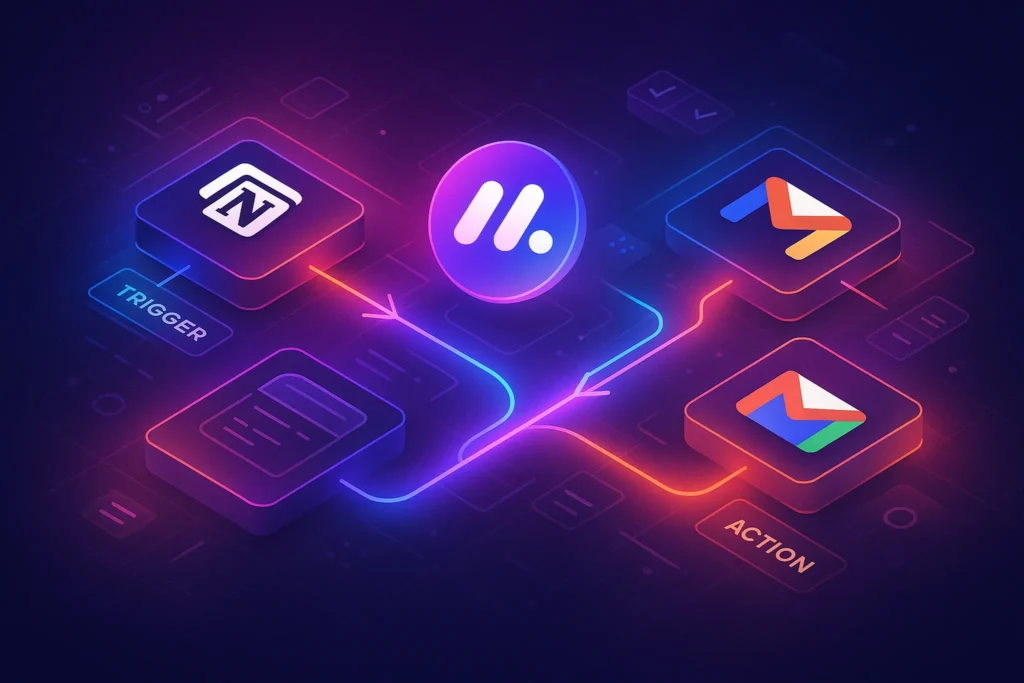🌍 Intro: Why Deep Work Matters More in 2025
We live in an era where the average knowledge worker receives a notification every six minutes. Emails, Slack pings, TikTok scrolls, and background noise are no longer interruptions—they’re the default. Against this constant storm of distraction, Cal Newport’s idea of Deep Work has become more than a productivity hack; it’s a survival strategy. Deep work is about carving out stretches of focused, distraction-free time to do cognitively demanding work. For professionals, creators, students, and entrepreneurs, the ability to concentrate deeply has become the ultimate competitive edge. NerdChips has covered many tools for productivity and automation, but this piece digs into the discipline behind those tools: the art of building an environment and mindset that fosters unbroken focus.
🧠 What Is Deep Work?
Deep Work, as defined by Newport, is the ability to focus without distraction on tasks that push your cognitive capabilities to their limit. Shallow work, in contrast, is what fills your inbox: surface-level tasks, quick replies, or endless meetings. The tragedy of 2025 is that shallow work is easier, faster, and instantly rewarding—yet it leaves you with nothing of lasting value. Deep work, on the other hand, requires effort, discomfort, and deliberate practice, but produces results that matter: writing a research paper, coding a new product feature, or designing a marketing strategy that could change a business.
The magic is in the output. One hour of deep work can equal five hours of distracted, context-switching work. For creators, this means finally making progress on that book draft or video script. For knowledge workers, it could mean solving a complex problem that colleagues have been circling for weeks. For entrepreneurs, it’s where breakthroughs happen.
🔒 Building the Environment for Focus
The first step in adopting deep work isn’t about apps—it’s about your environment. Focus thrives in protected space. That might mean turning a spare corner of your apartment into a “focus zone,” where your phone never enters. It could mean scheduling focus blocks on your calendar and treating them like unmissable client meetings. If you want to align with strategies like Time Blocking vs Pomodoro, deep work usually pairs best with longer blocks of time—90 minutes or more—since the brain needs a ramp-up period before reaching true flow.
Digital distractions are the hardest barrier. Apps like Forest, Freedom, or Cold Turkey can help by blocking social media and distracting sites. But apps alone won’t save you unless you enforce rules of engagement: perhaps no messaging apps until lunch, or a strict policy of checking email only twice per day. In an age of infinite scrolling, the discipline of turning things off becomes an act of empowerment.
⏳ Training Your Concentration Muscle
Focus is like a muscle—it strengthens with use. The first time you attempt deep work, you may only last twenty minutes before reaching for your phone. That’s normal. The key is to practice systematically. Start with 25-minute sessions, similar to Pomodoro, and gradually extend them. Each time you feel the itch to check something else but resist, you’ve effectively trained your mind.
Cal Newport recommends “productive meditation”: using moments like walking or commuting to think deeply about a problem, resisting the urge to fill the silence with podcasts or news. Over time, you condition your mind to treat focus as the default rather than the exception. Tools like How to Overcome Procrastination with Technology can support you here, but the heavy lifting is internal.
📱 Tools and Rituals That Support Deep Work
Although deep work is primarily about behavior, the right tools can reinforce your focus. Task managers like Todoist or Notion help plan focus sessions. Noise-cancelling headphones create an auditory shield, while apps like Brain.fm or Endel provide background sounds scientifically tuned for concentration. For writers and students, distraction-free editors like Ulysses or IA Writer remove clutter and make it harder to alt-tab into distractions.
Morning routines matter too. Rituals like journaling, meditation, or reviewing your goals can prime the brain for focus. Even small signals—a specific playlist or a cup of coffee reserved only for deep work—condition your mind to enter the state more quickly. This aligns with principles we explored in How to Build a Daily Routine That Actually Sticks.
🔬 The Science of Deep Work
Cognitive science explains why deep work is powerful. Each time you switch contexts—from writing to checking an email—your brain pays a “switching cost.” It takes minutes to regain the same level of focus you had before. Multiply that across a day, and you’re losing hours. Deep work reduces switching costs by eliminating them: once you enter a state of flow, your prefrontal cortex sustains concentration for longer, and dopamine feedback loops reward you for solving problems instead of seeking shallow hits of novelty.
Research also shows that people who practice focus regularly report higher satisfaction and lower anxiety. In a noisy world, deep work is not just about productivity—it’s about peace of mind. It’s an antidote to burnout, offering a sense of progress and mastery.
🚀 Putting Deep Work Into Daily Life
The challenge isn’t understanding deep work—it’s implementing it consistently. Start by identifying your “deepest” task: the work that, if done with focus, will move the needle most. Schedule a block for it tomorrow morning, when willpower is highest. Remove distractions ruthlessly: phone in another room, email closed, headphones on. At the end of the block, reflect on what you achieved and how it felt.
As you repeat the process, you’ll begin to crave the state of flow. Your brain learns that the satisfaction of producing meaningful work outweighs the shallow dopamine of quick distractions. Over time, deep work can transform from an occasional practice into a daily rhythm, a core habit that protects you against the chaos of the digital world.
📬 Want More Smart Productivity Tips?
Join the free NerdChips newsletter for weekly insights on productivity, focus, and future-ready tools. Practical advice, zero fluff.
🔐 100% privacy. Just actionable tips to sharpen your focus and workflow.
🌍 Use-Case Layering: Deep Work in Real Lives
Deep Work comes alive when we see it in the context of real people. A university student preparing for finals might schedule two uninterrupted blocks every morning—no phone, no notifications, just textbooks and notes—to absorb dense material that scattered studying could never achieve. A freelance programmer, on the other hand, might block out afternoons for coding sprints, using Deep Work to tackle complex backend problems that require mental flow and sustained concentration. Meanwhile, a startup founder could dedicate early mornings to strategy writing or investor decks before the whirlwind of meetings begins. Each use case demonstrates the same principle: you carve out space for work that moves the needle, and you protect it fiercely. What’s powerful here is the adaptability—Deep Work is not a rigid formula, but a mindset that can be tailored to a student’s semester, a creator’s deadlines, or an entrepreneur’s scaling challenges.
⚖️ Micro-Comparison: Deep Work vs. Other Productivity Methods
People often confuse Deep Work with methods like Pomodoro or Time Blocking, but the differences matter. Pomodoro, with its 25-minute intervals, is great for beating procrastination and getting started. It’s a low-barrier entry point, especially for those who find focus intimidating. Time Blocking, on the other hand, structures your calendar by tasks and ensures no hour is wasted. Yet Deep Work goes further—it isn’t just about managing time, it’s about protecting cognitive intensity. Unlike Pomodoro, which encourages frequent breaks, Deep Work thrives on sustained immersion, often 90 minutes to 3 hours without interruption. Unlike standard Time Blocking, it emphasizes prioritizing cognitively demanding tasks over shallow, logistical work. Think of it this way: Pomodoro is learning to jog, Time Blocking is planning the route, but Deep Work is running the marathon that actually transforms your performance.
📈 ROI & Life Impact of Deep Work
The true return on Deep Work isn’t just in finished tasks—it’s in exponential results over time. Let’s say you commit to two hours of Deep Work daily. Over a year, that’s more than 700 hours invested in high-value tasks like writing, coding, designing, or research. Now compare that to shallow work—emails, meetings, notifications—which expands infinitely but produces little compounding value. For a writer, 700 hours could mean multiple books. For a developer, it could mean launching an app. For a marketer, it might translate into a robust content pipeline. The math is simple but profound: a small daily commitment creates an annual output that separates those who advance in their fields from those who remain stuck in reactive cycles. Deep Work is not about squeezing productivity; it’s about multiplying impact.
🔗 Integration Spotlight: Deep Work Meets Modern Tools
Cal Newport designed Deep Work before the rise of today’s AI and productivity ecosystems, but the principle blends seamlessly with modern tools. Apps like Notion or Obsidian can structure Deep Work sessions into knowledge-building systems, while digital blockers like Freedom, Cold Turkey, or Focusmate enforce the boundaries needed for concentration. You can even combine Deep Work with time-blocking calendars inside Google or Outlook, reinforcing commitments visually and making them harder to ignore. Pair this with habit trackers, as described in our piece on How to Build a Daily Routine That Actually Sticks, and you begin to weave Deep Work into the very fabric of daily life. Technology often gets blamed for distraction, but here it becomes an ally, not an enemy—helping you cut noise, focus longer, and store the results in second-brain systems like Building a Second Brain.
🔮 Future Scenario Box: Deep Work in 2030
Looking ahead, the demand for Deep Work will only intensify. As AI and automation swallow shallow tasks—scheduling, drafting, even parts of customer support—human value will increasingly lie in complex synthesis, creative problem solving, and innovative leaps. By 2030, workplaces may explicitly schedule Deep Work blocks as part of corporate policy, recognizing that uninterrupted focus isn’t a perk but a competitive advantage. Education will likely follow, with schools training students in “focus literacy” as much as in digital literacy. Imagine AI tools that don’t just distract but actively support your flow, automatically deferring emails, muting irrelevant alerts, and surfacing only resources aligned with your current project. The paradox is that the noisier the world becomes, the more prized silence will be—and those who master Deep Work will thrive in the noise.
✅ Quick Decision Framework: How to Start Deep Work
If you’re overwhelmed by all this, here’s a simple way to decide how to begin. Beginners should start with 30-minute daily sessions—short enough to feel doable, but long enough to train the concentration muscle. Once that becomes comfortable, extend to 90 minutes, ideally once in the morning and once in the afternoon, when your energy is highest. Advanced practitioners, especially knowledge workers and creators, often aim for three to four hours of Deep Work daily, broken into two large blocks. The key is not to chase perfection but to build progression: start small, grow gradually, and measure success not by how many hours you attempted, but by how deeply immersed you actually became. Over time, Deep Work becomes less about scheduling and more about identity—you become someone who guards focus the way athletes guard physical training.
🧠 Nerd Verdict
Deep work isn’t glamorous. It doesn’t rely on the latest AI app or automation trick. But it’s the foundation on which all productivity tools rest. Without focus, the best tech in the world only enables faster distraction. With focus, even pen and paper can produce extraordinary results. At NerdChips, we believe deep work is not just a framework for productivity—it’s a philosophy for living intentionally in a noisy age.
❓ FAQ: Nerds Ask, We Answer
💬 Would You Bite?
What’s the single task in your life that deserves a deep work session tomorrow—and what would you need to cut out to make it happen?



